Florida Student Association reintroduces Hunger Free Campus Grant to fight food insecurity
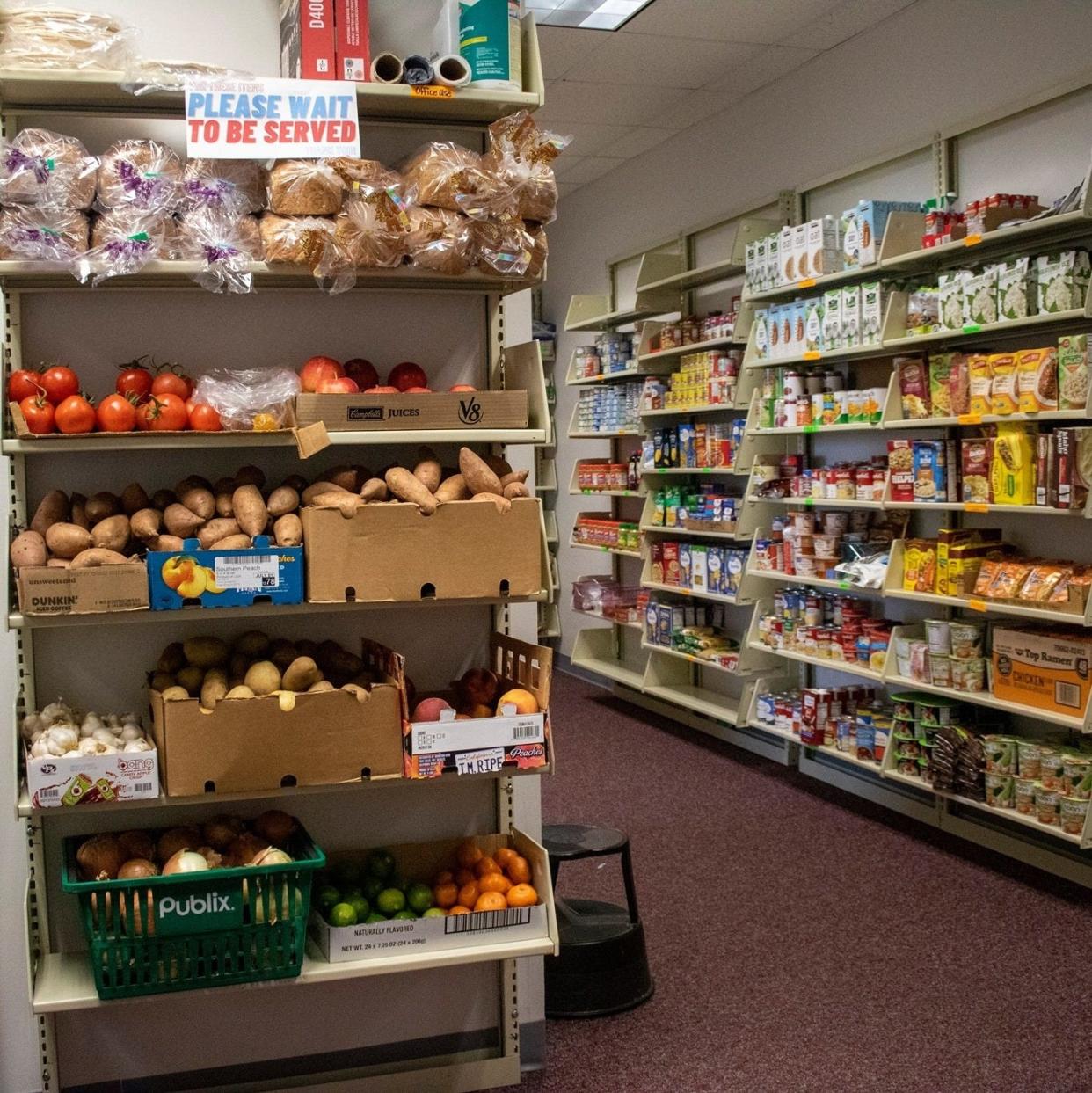
Student body presidents from public universities across the state proposed a food insecurity grant in this year’s legislative session that failed to pass.
The setback didn’t stop the group from trying again as they recharge for the 2023 legislative session.
As members of the Florida Student Association, the board of student presidents, from each of the State University System of Florida institutions, are working on reintroducing the Hunger Free Campus Grant, which would provide the universities with funding to take steps toward alleviating food insecurity on their campuses.
“I think it’s terrible when a student’s priorities are not how they’re doing in class or how they can prepare to graduate but is instead how they will put food on the table,” FSU Student Body President Nimna Gabadage said. “That should never be the number one thing on a student’s mind at a public university.”
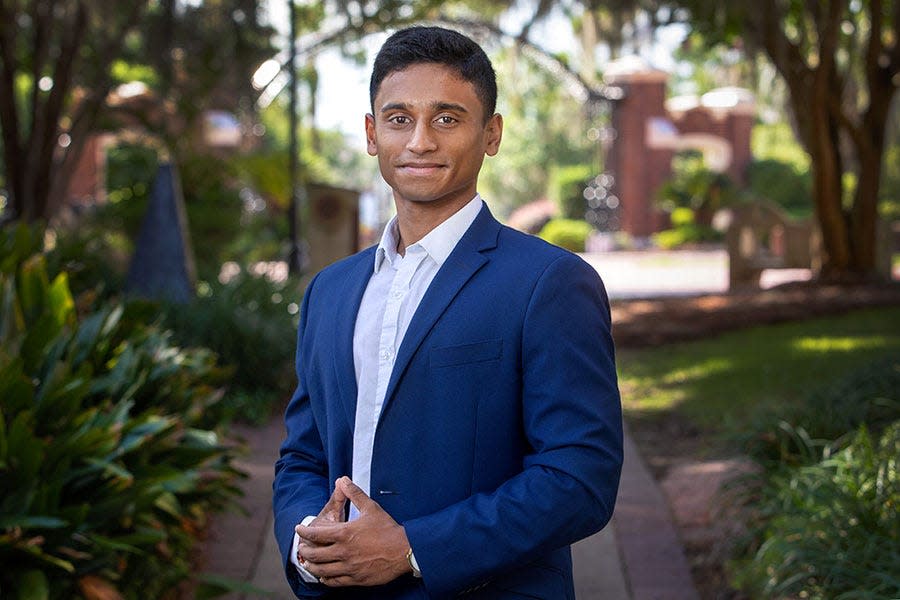
Gabadage is also chair of the Florida Student Association and is a member of the Florida Board of Governors, which allowed him to bring up the issue to the board during a September meeting.
“I think food insecurity is something that isn’t talked about a whole lot because it's hard for the average student to bring that to an administrative level,” Gabadage said. “This is why I wanted to come in to publicize the issue and make it something that people are aware of. It’s something that’s been longstanding.”
Food insecurity is defined as the lack of regular access to nutritious food to maintain a healthy life.
Nearly 30% of students at four-year colleges experienced food insecurity in fall 2020, according to U.S. News and World Report. Nationwide, 34% of students say they know someone who has dropped out of college because they can't afford to buy food.
Each year, the Florida Student Association chooses what its legislative priority should be. While the top issues last year were telecounseling, Title IX protections and Bright Futures, the main concern this year is food insecurity.
Before the school year started, an open discussion between the student presidents about the concerns they've heard from students at their universities showed that the number one issue was students struggling to find affordable food options on campus.
More on student initiatives: 'Giving pain purpose': FSU student-led initiative brings awareness to sudden cardiac arrest
Hunger Free Campus Grant background
If passed during session, the Hunger Free Campus Grant would have been established through the Department of Agriculture and Consumer Services.
It would require Commissioner of Agriculture Nikki Fried to annually label eligible public campuses as Hunger-Free Campuses, which is a designation based on eligibility requirements that universities would need to meet such as having an established team that monitors nutrition compliance. The goal of highlighting the universities is to encourage them to play an active role in reducing food insecurity.
The initiative would also require grants to be awarded to colleges that have one or more campuses designated as a Hunger-Free Campus while prioritizing the money to colleges with the highest percentages of eligible Pell Grant recipients enrolled in their student body.
While FSU has 8,307 eligible Pell Grant students out of its fall enrollment of about 45,000 students, FAMU has 4,161 who are eligible out of the 9,027 who are enrolled, according to a spokesperson for the State University System.
Other FSU, FAMU news:
‘One important piece of the puzzle’: FAMU acquires apartments to add 118 beds for students
Inside FSU's in-progress 'hub of business collaboration,' a project costing at least $130M
FAMU, FSU students ready for upcoming midterm elections with first-time voters 'excited'
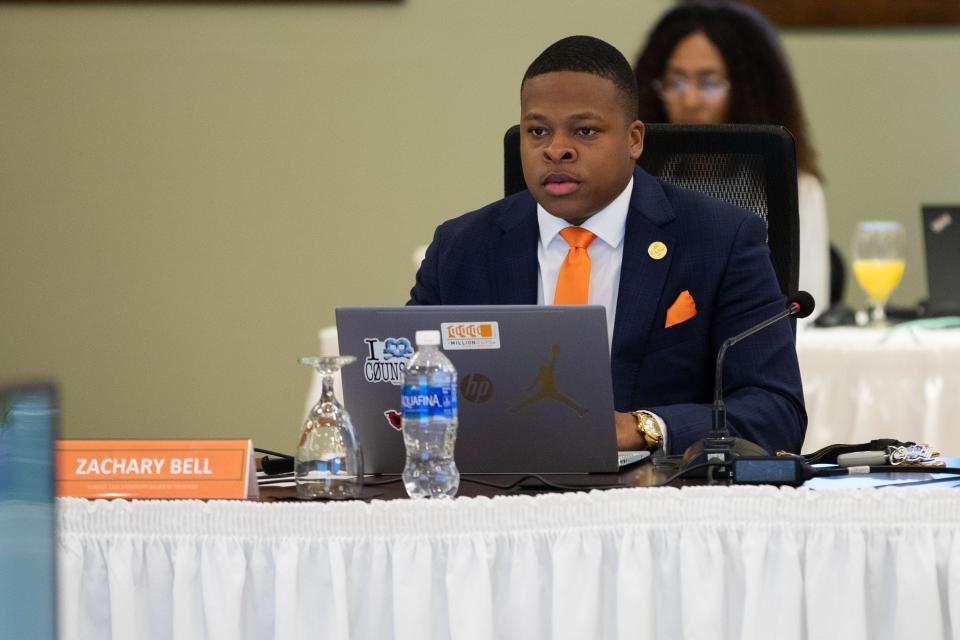
FAMU Student Body President Zachary Bell expressed the importance of students being provided with as much help as possible to be successful in the classroom.
“FAMU is a growing institution with more and more students enrolling every year. Coming into FAMU, students should be met with enough resources not only at school, but also in the Tallahassee community,” Bell said, referring to how the south side of Tallahassee in the FAMU area only has one grocery store, which is Piggly Wiggly on South Monroe Street.
The university has a free food pantry on campus, which partners with Second Harvest, Publix Super Market, Publix GreenWise Market and Panera Bread.
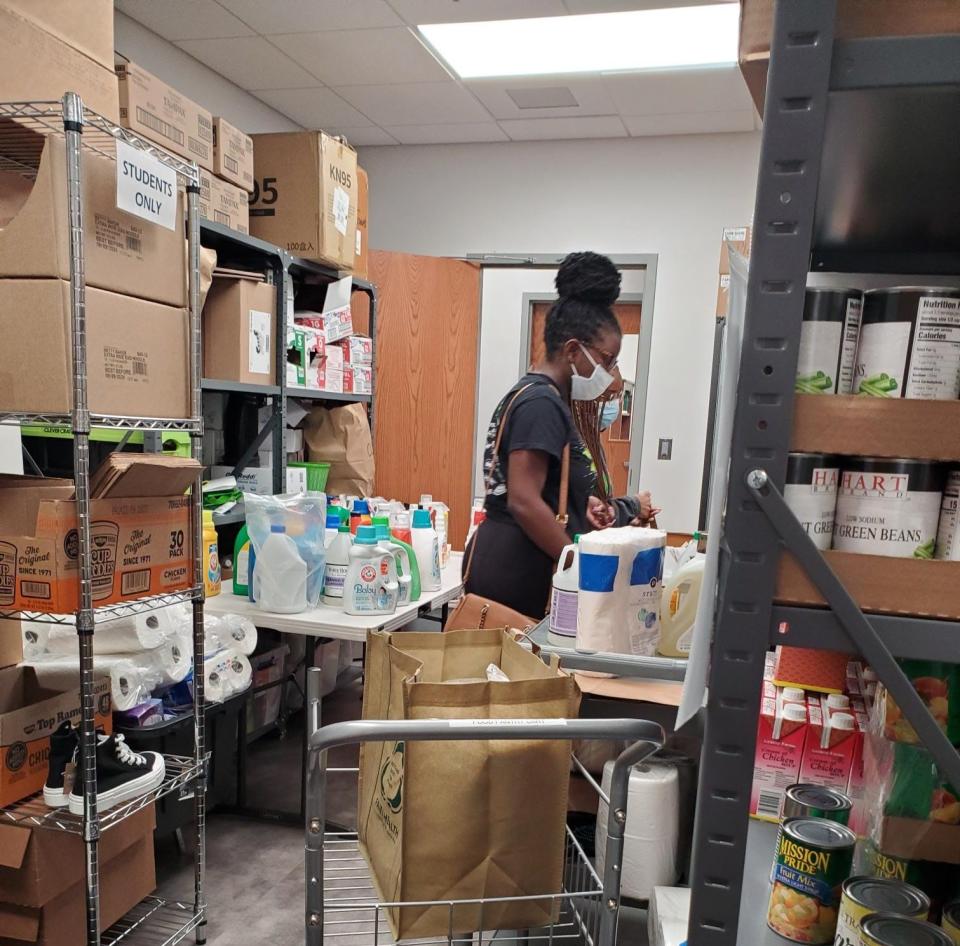
“We’ve always seen food insecurity as a health issue, so we try to do our part to make sure we have resources available for students who need them,” FAMU Student Health Services Director Tanya Tatum said.
Last year the pantry served almost 2,000 students and distributed more than 25,000 pounds of food, Tatum said. Since the start of the fall semester, it has served more than 800 students.
At FSU, the Food for Thought Pantry, which is also free, has been operating since 2009 and includes dairy products, fresh produce and dry pantry staples, such as rice and mac and cheese. It serves about 40 to 100 students a day and served over 400 students in the first two weeks of the fall semester, according to Case Manager Haley Gentile.
“My hope is that we can help make students’ days a little easier so that they can focus on their grades, extracurriculars and the reason they came to FSU,” Gentile said.
More on FSU resources: A long time coming: FSU establishes EBT terminals on campus to accept SNAP benefits
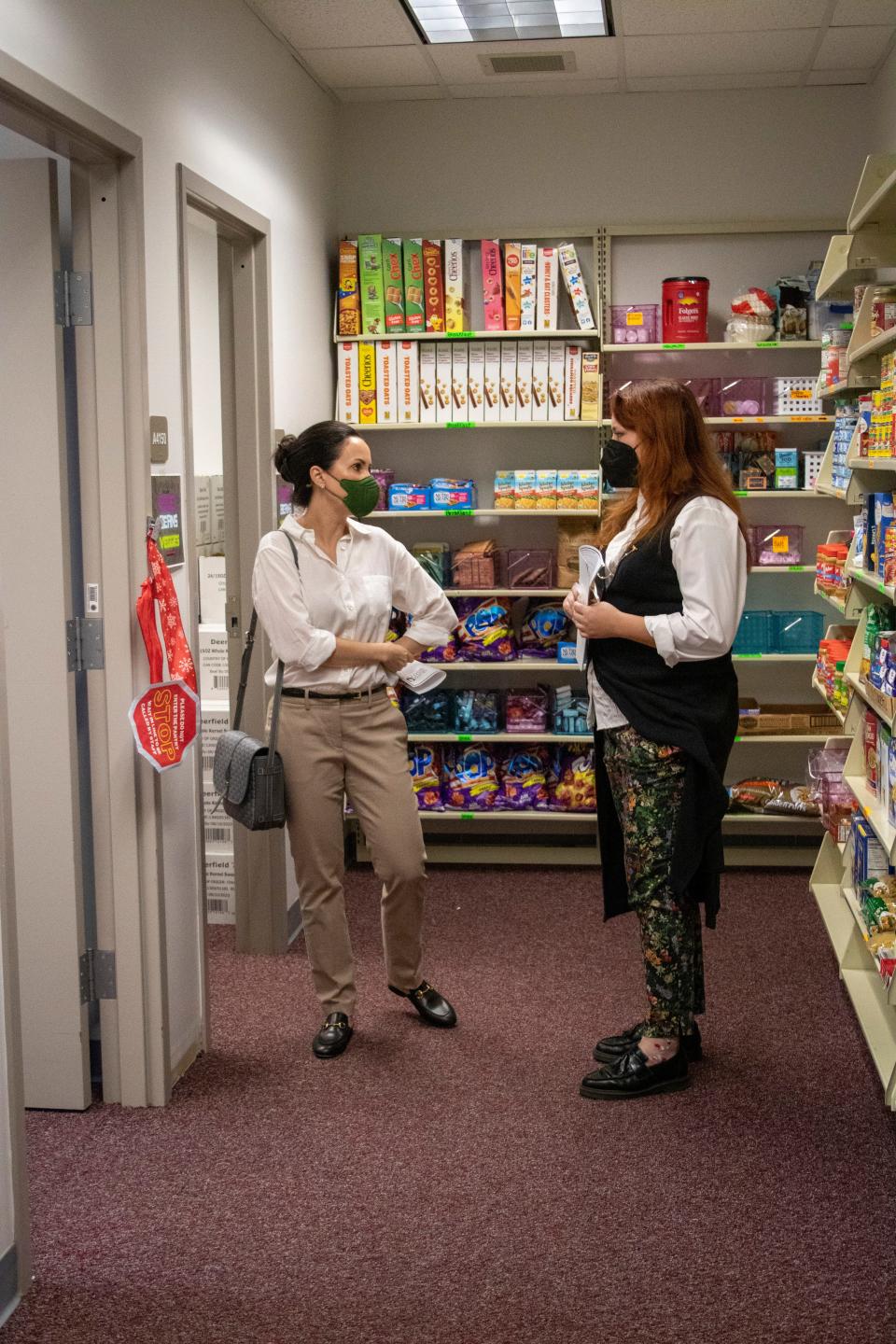
How students will advocate
The organization Florida PIRG, which works to ensure student voices are heard on issues such as college affordability and ending hunger and homelessness, is partnering with the Florida Student Association.
They plan to advocate for the grant in the months leading up to the legislative session, which will begin April 10.
“Our initiatives are focused entirely on building up the student body, getting visibility and awareness around the issue and organizing students to direct their energies toward supporting the grant through social media work or lobbying at the Capitol,” said third-year FSU student Andres Cubillos, who is also the external affairs and outreach chair of the FSU Chapter of Florida PIRG.
The students’ advocacy plans also include organizing a canned food drive that is expected to run during Hunger and Homelessness Awareness Week from Nov. 12-18.
As the college students continue to work on finalizing the details of the grant and how to effectively spread the word, they hope to see positive results after lobbying the Capitol during next year’s legislative session.
Contact Tarah Jean at tjean@tallahassee.com or follow her on twitter @tarahjean_.
Never miss a story: Subscribe to the Tallahassee Democrat using the link at the top of the page.
INFOBOX:
Here is more information on FSU’s Food for Thought Pantry:
Days of operation - Monday through Friday
Hours of operation – 8 a.m. to 5 p.m.
Location – University Center A, Suite 4148
Here is more information on FAMU’s food pantry:
Days of operation – Monday through Friday
Hours of operation – 9 a.m. to 3:30 p.m.
Location - Student Health Service’s primary care clinic, in the CASS Building (1735 Wahnish Way)
This article originally appeared on Tallahassee Democrat: Hunger Free Campus Grant reintroduced as colleges fight food insecurity

